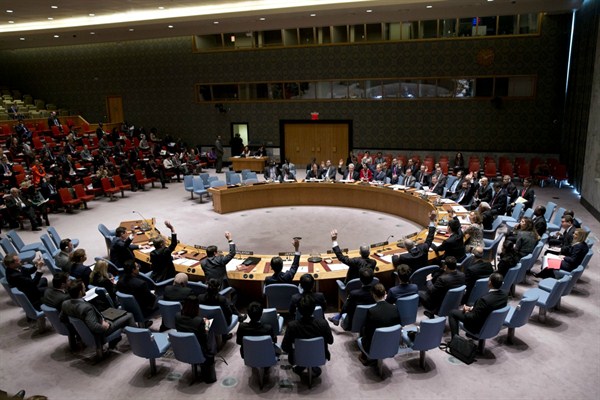Editor's note: Guest columnist Jim Della-Giacoma is filling in for Richard Gowan, who is on leave until early April.
The first time I heard the German word “zwangsoptimist” was in a meeting to discuss ways to improve how the international system functions. Meaning “someone who feels compelled to be an optimist,” the word not only succinctly sums up my work for and alongside the U.N. over the past 27 years, but could also be a one-word job description for the organization’s next secretary-general.
Not everyone sees the world, or the U.N., this way. In his recent op-ed in The New York Times, titled “I Love the U.N., but It Is Failing,” outgoing senior U.N. official Anthony Banbury saw the glass as more than half-empty. The U.N. Secretariat that the next secretary-general will administer, he wrote, has a sclerotic personnel system. He described a dysfunctional organization with minimal accountability, where political expediency trumps universal values and facts on the ground, and whose peacekeeping operations apply antiquated tools to 21st-century conflicts.

